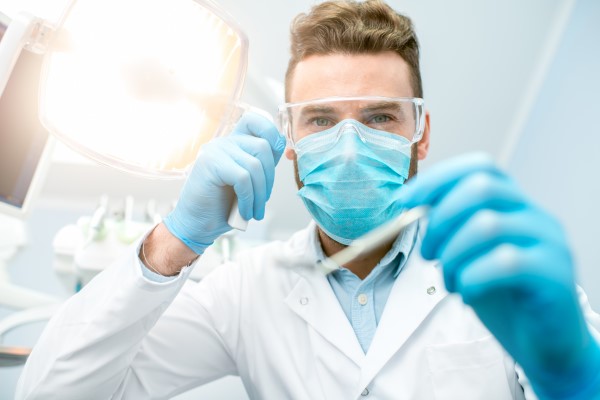Infection Control Safety Measures for Emergency Dentist Visits During Coronavirus Disease

The coronavirus pandemic has led to dentists changing the way their clinics operate to improve infection control. Many of these changes are based on guidelines provided by the American Dental Association. The goal of making these changes is to limit the risk of both dentists and their patients getting infected with COVID-19 while at the clinic.
The coronavirus is known to be transferred via water droplets in the air. This makes it more contagious than many other viruses, and it can also survive on surfaces for over 48 hours. Touching a contaminated surface and toughing the nose or mouth can lead to a person becoming infected.
As a result, dentists now have the extra burden of protecting themselves, their employees and their patients as the world fights COVID-19.
New infection control safety measures dental clinics are taking
Here are some of the changes dental clinics are making to promote better infection control:
1. Use of protective face masks and screens
Dentists and their employees will use face masks and screens while performing treatments when available. Doing so helps to prevent germs from the patient spreading to the dentist in the form of airborne droplets. The coronavirus is mainly transmitted from human-to-human via droplets in the air.
2. Limit treatments to emergency care
Many dentists are limiting their services to emergency care. This limits the number of patients who need to see the dentist, helping to protect all parties involved. Patients with non-emergency dental needs are being advised to wait until the pandemic is over before getting treatment.
Some dentists are also providing teledentistry for patients who do not have a dental emergency. Video conferencing and other tools can be used to evaluate patients and recommend treatments without a need for person-to-person contact at the clinic.
3. Improved sanitation
Dental clinics are increasing the frequency common areas are cleaned to prevent cross-contamination. Items like toys and magazines might be removed from waiting rooms since these are not easily disinfected. Hand sanitizers will be available in common areas so patients can disinfect their hands as needed.
4. Social distancing
Appointments at dental clinics will be spaced out to ensure patients can still practice social distancing in waiting rooms. Many clinics are also giving their patients the option to wait in their vehicles after checking in.
5. Limited use of equipment that create aerosols
Some of the equipment used by dentists, like air-water injections, create droplets of water that can carry microorganisms, like the coronavirus. Dentists will avoid using such tools when appropriate, and they will take extra precautions when such equipment is needed to treat a patient with a dental emergency.
We are still open
Call our San Dimas clinic if you need dental care. Our clinic remains open to those dealing with dental emergencies and we provide teledentistry for those dealing with non-emergency oral problems. Our dentist can evaluate you over the phone/video conferencing and advise you if you need to come to the clinic.
Request an appointment here: https://sandimassedation.com or call San Dimas Family and Sedation Dentistry at (909) 740-8294 for an appointment in our San Dimas office.
Check out what others are saying about our services on Yelp: Read our Yelp reviews.
Recent Posts
The teeth are an essential part of the human body, which is why so many people turn to dental implants. Without enough teeth, it is harder for people to bite into and chew their food and harder to enunciate certain words when speaking. When many teeth are missing, the shape of the face will change,…
Many people in the United States have dental implants, but that does not change the fact that misinformation about the procedure still runs rampant. Check out these myths and facts about them to help you determine if implant surgery is right for you.There are many myths about implants. Learn about the myths and the facts…
If you are missing one or more teeth, you may consider getting dental implants. Implants are a popular tooth replacement option, as they look and feel like natural teeth and, most enticing of all, have the potential to last for a lifetime. That said, though implants offer several benefits, they do come with a few…
Patients considering dental crowns may have concerns regarding the recovery period following the procedure. Fortunately, the typical recovery period is relatively quick and involves minor inconvenience. Most risks and complications resulting from the procedure are comparable to those of most dental procedures and therefore require similar precautions.The placement of dental crowns involves two stages, each…


